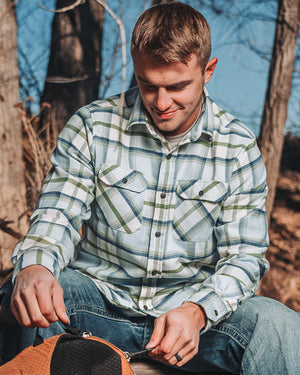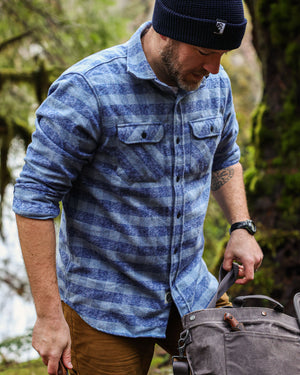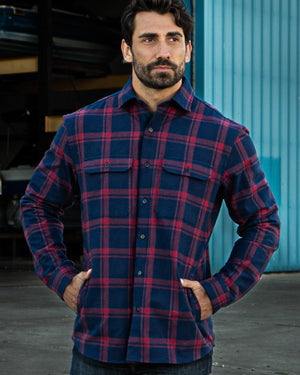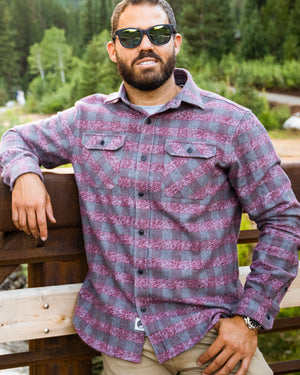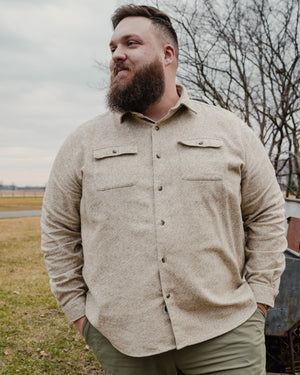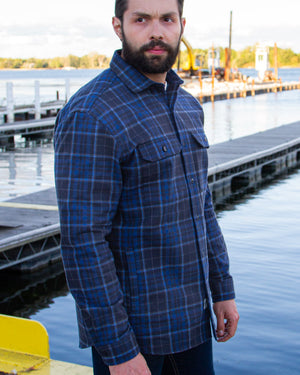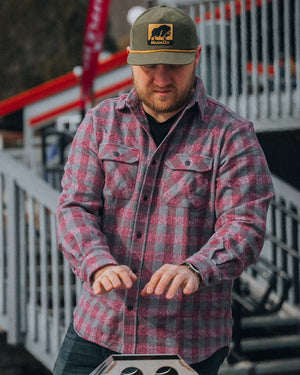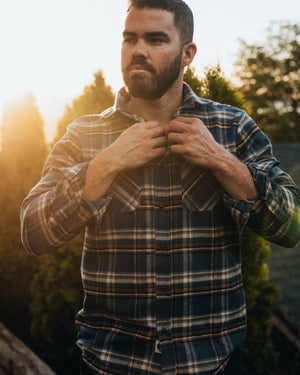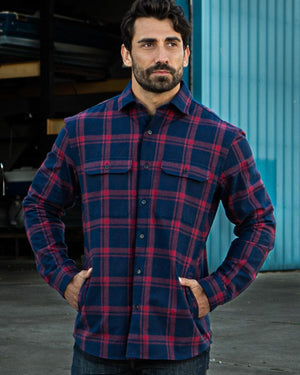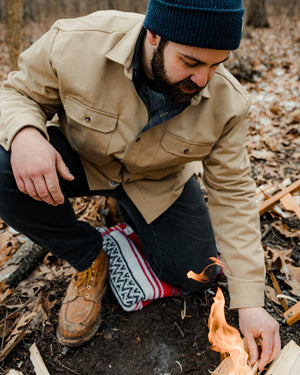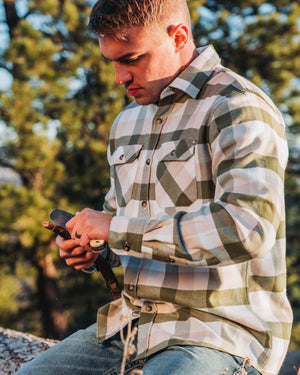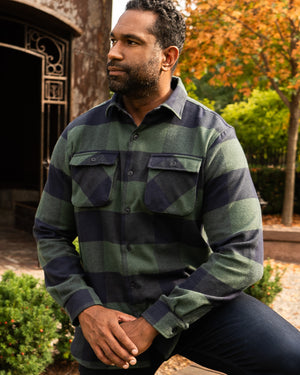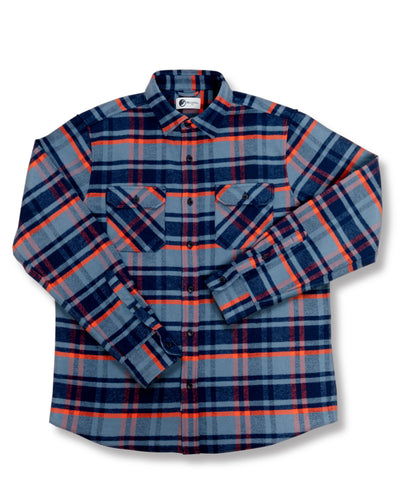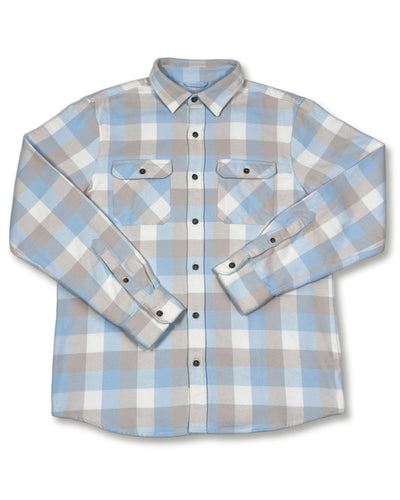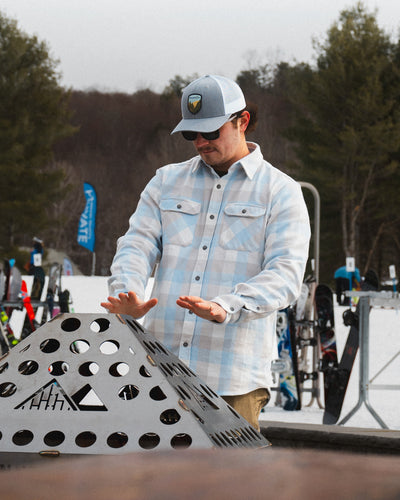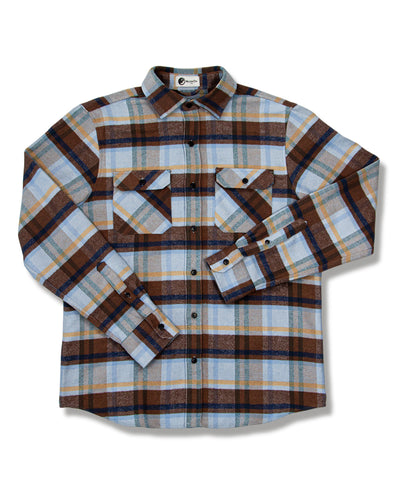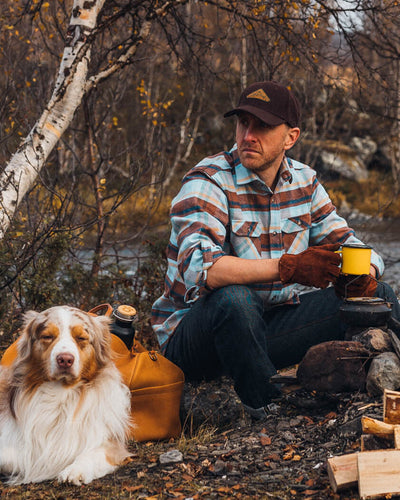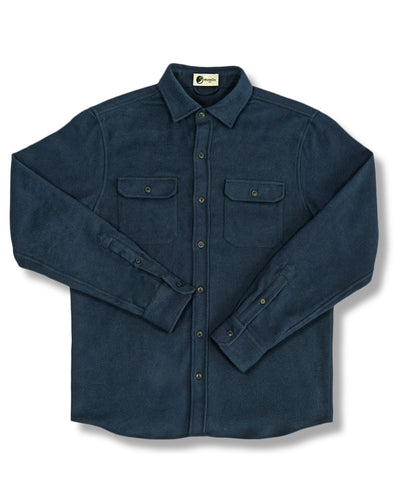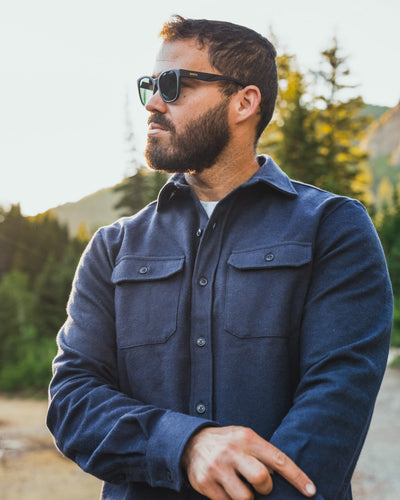Lessons of Primitive Survival with Ray Livingston
Ray Livingston — a modern survivalist who has documented journeys through Mother Nature’s most extreme conditions and expansive isolation has shown us how to press forward into wilderness one footstep at a time. Ray Livingston clearly has the confidence to conquer situations of the unknown, but he also carries a level of comfort and sense of humor with the outdoors that is key to survival.
 Photo of Ray Livingston in the New Mexico Desert — @ray_living_with_predators
Photo of Ray Livingston in the New Mexico Desert — @ray_living_with_predators
The MuskOx Herd may know of Ray by way of his appearance on the History Channel’s Alone where he ventured into the Canadian Arctic for 19 days. With him were only 10 tools needed for survival in a remote and primitive terrain. Since his Alone debut in 2019 Ray has gone to create Mud, Sweat and Beards with fellow wildlife expert, Donny Dust. Ray is a role model within the outdoor survival and hunting world on and off screen, and he’s dedicated his personal life to outdoor literacy, mindfulness and being a wildlife control operator.
Always exploring, and always pressing forward, Ray joined the MuskOx Herd in 2022 as an ambassador to the MuskOx brand. We were fortunate to have a chat with the unapologetically authentic survival expert, Ray Livingston.
 Ray Livingston in a MuskOx Field Grand Flannel
Ray Livingston in a MuskOx Field Grand Flannel
What is the most unexpected survival tool you’re always carrying?
Here in the Pacific Northwest, when you talk about survival or being out in the forest, the most dangerous thing and probably the most dangerous thing in the world really is exposure. The rule of threes says that if you're in a survival situation, you've got about three minutes of life if you're not breathing, three hours without warmth, three days if you don’t have water, and three weeks if you don’t have food.
"If you're in a survival situation, you've got about three minutes of life if you're not breathing, three hours without warmth, three days if you don’t have water, and three weeks if you don’t have food."
So assuming that you're breathing, the most important thing is heat and being able to heat yourself. The first layer is great clothing. The ability to start a fire is quintessential if you're in an emergency situation, so I do carry a lighter, a ferro rod, and a little bit of tender. All year with the exception for the hottest part of the summer, I carry a propane blowtorch. The blowtorch adds a few extra pounds to my pack, but in the case that I need a fire immediately, it's the quickest way.
If you're feeling hypothermic, you're generally feeling a loss of dexterity, you may not be able to work a lighter. You may not be able to strike matches or work a ferro rod. Here in the Pacific Northwest, everything's moist, and even with the lighter, and the ferro rod you may not get a fire going. That’s when I pull out a propane blowtorch.
 Photo of Ray Livingston — @ray_living_with_predators
Photo of Ray Livingston — @ray_living_with_predators
You have had a lot of tough situations and you’ve learned a lot. What would you say was the most scared that you have ever been?
With all the situations that I've been in, I think the stuff that most people would consider the scariest probably isn't what I would consider. The most scared I've been was the first time I decided I was going to go out on a solo archery hunt. I was still in college, and was running track for University of Oregon. That's when I left one day in the evening and drove across the state of Oregon and I got tired on the way and so I decided that I was just going to pitch a quick camp and continue on.
"I was so freaked out being alone in the middle of nowhere by myself for the first time that I actually packed up and went home. I realized I wasn't ready to be out by myself and I can't be an effective hunter if I'm scared."
I was so freaked out being alone in the middle of nowhere by myself for the first time that I actually packed up and went home. I realized I wasn't ready to be out by myself and I can't be an effective hunter if I'm scared. It was just a matter of experience at that point. What I did from there is, I took baby steps and I just went a little further and a little further.
Getting a GPS was one of the most freeing things that I ever did, because I wasn't afraid of getting lost and I could go on trips around the woods. It was just that fear of being alone and obviously I've pretty much rectified it.
That's one of those things that prevents a lot of people from really getting out and enjoying the outdoors — the fear of getting lost or predator attacks or something like that. I think the more time I spent deeper in, the more situations I've run into and I’ve never had any issues. I ran into a bear with cubs a couple years ago, and I just sat there and watched them. She looked at me and just went on her own way. There was no fear, it's spending time in the forest helped that.
Just being out by yourself alone for that first time, that stuck with me, because it was a pivotal point. I made a choice that ended up putting me where I'm at now. Otherwise, I would be in a much different place.


When things get really tough both out in the wilderness but also in life what is the one thing that really keeps you going and motivates you?
Well, as the person that believes that everything happens for a reason, I really hold on to that. I think that the struggles that we have as we go through life are designed to get us from where we are to where we need to be. So you ask the universe, god, however you relate to the world, you ask for some type of blessing. A lot of times you ask for strength and happiness, and you're gonna have to go through some hardships so that you can understand, appreciate, and be ready to accept the blessings that you ask for.
"If you understand and believe that every hardship has a lesson to be learned then there's a greater strength to be gained from it."
I'm one of those people that when I’m met with hardship, instead of focusing on the hardship itself, I tend to ask myself, why is this happening? What's the lesson to be learned here? If you understand and believe that every hardship has a lesson to be learned then there's a greater strength to be gained from it. It kind of flips the narrative a little bit so you're not focusing on who I am.
I also have the mindset that there's something better coming from this. I look forward to whatever blessing, whatever gain and strengths, or growth and knowledge, that comes from it. I'm not sure who said this, but the quote was, “we don't see the world as it is, we see the world as we are” and I think, for myself, that that's profoundly true.
In terms of fabrics, fibers and clothing, what benefits you outdoors?
I choose the clothing that I wear really on twofold. One, am I going to destroy it in a day. Two, as far as the fabric, it's really dependent on what I'm doing at the time. Generally, when I'm going somewhere, where there is the possibility that I could get stranded in the middle of woods, I tend to go with insulative fabrics. Wool is king in the wilderness survival community and obviously there's a lot of synthetics that mimic some of the properties of wool but to have a fabric that will insulate at 80% even when wet is huge, especially here in the Northwest. At any given time you may you may fall into some type of pond or lake you might have a sudden random monsoon or rainstorm. I dress in layers generally with some good base layers and maybe two or three more layers, depending on what time of year it is. And then, a water resistant, or insulated outer shell.

For me personally, a lot of it is the feel of the fabric. If I go through a clothing store, I feel and that was one of the things that I noticed first when I received a MuskOx Flannel. It felt good. It’s just one of those things, I might want a blanket made out of it.
It felt good, but it also was well made and that's a big thing. They're not the cheapest flannels on the market, but you can tell the difference when you touch it. They're well made and thick, you know, cotton isn't the most insulated when wet, but in other conditions…
I've worked in my MuskOx stuff out in some pretty poor conditions in the sub-zero sub freezing temperatures. It's done well for me because I didn't get it wet. Those are my adventures over here where I live now, it's fairly dry. So while wool’s still king in my book, I do spend a lot of time in cotton because it's okay. One of the nice parts about it is that the temperatures may vary, if I'm in the shadow of a mountain it's gonna be cold. If I pop over to the south side of the mountain, it's gonna be hot.
This time of year [early-Spring] when you've got a bunch of other layers, the other benefit of cotton is that it does dissipate heat quickly. When you transition from the cold side of the mountain to the hot side of the mountain it’s a versatile fabric so it actually helps me. I stay cool without having to strip off my clothes while I'm hiking.
There's pros and cons to any fabric but I think you guys have a pretty good balance with your products and make them very usable. That was my one concern coming into our relationship. I heard MuskOx, and I was like, are you making stuff out of qiviut? I've been trying to find some equipment that is affordable, which it’s not. But it was really when I got the first shirts and everything that I've got since then I've been very impressed with the craftsmanship. The flannels have performed the way I needed them to, just as well as my wool clothing.
When you’re out in nature is food and cooking just a means of survival or can it be a creative outlet?
I enjoy cooking a great lot at home and in the field, it's nice to do it everywhere I go. When I identify something in nature, I try to take a little snack of it as I'm walking through the forest. That serves two purposes — to remind me and keep my plant identification of origin skills sharp, and also to increase biodiversity of the gut. Your digestive system is one of the leading indicators of overall health and we in our urban world eat about seven or eight things that are prepared in different ways. We don't have a lot of biodiversity in our gut because of this.
One of the best ways to increase that is to forage wild foods. It adds a whole different element of bio-positive organisms into our bodies that increase our digestion and our overall health. So, I go through the world of snacks just thinking about doing something good for my body. When it comes down to cooking, it's fun and great. There's a lot of flavors that the freshest foods have when you're out there cooking, and there's something special about having a nice meal in the middle of nowhere. It's kind of epic. Get a nice fire going and try it out.
Follow Ray Livingston's adventures on his Instagram, TikTok, and YouTube channels.
